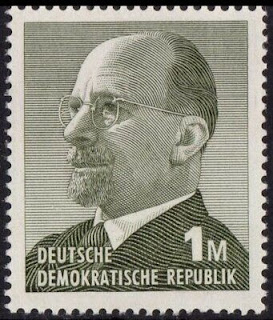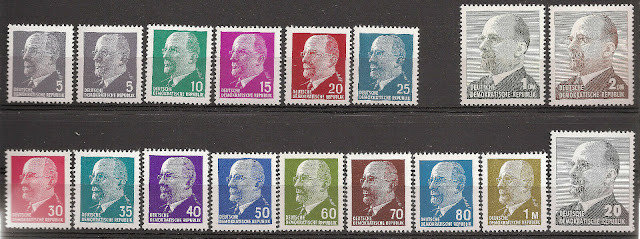Here are some events that happened on August 1st. It could be an event or a person that died or was born on that day
1860 Born: Bazil Assan, Romanian engineer and explorer (d. 1918)
Bazil George Assan (1 August 1860 – 16 June 1918) was a Romanian engineer, explorer and economist. Belonging to a wealthy family in Bucharest, Assan was an important figure in the industrialization of the Kingdom of Romania. He studied engineering, commerce and economics, which impulsed him to discover the globe. In 1896, he became the first Romanian to travel to the Arctic, and between 1897 and 1898, he became the first Romanian to travel around the world. His travels were later presented to King Carol I of Romania. Assan died on 16 June 1918 in Montreux, Switzerland.
Assan, stimulated by his knowledge of economics, commerce and industry, was greatly interested in discovering the world. Therefore, in the summer of 1896, he embarked on the Norwegian ship Erling Jart and, along with other scientists of various nationalities, traveled to the Arctic. Assan and the scientists studied the geological structure and natural resources of the archipelago of Svalbard. Thus, he became the first Romanian to travel to the Arctic.
Afterwards, between 1897 and 1898, departing from Constanța, he passed through Constantinople, Alexandria, Ceylon, Singapore, Hong Kong, Shanghai, Nagasaki, Tokyo, Yokohama, San Francisco, New York and London, establishing several trade agreements and becoming the first Romanian to travel around the world. His expeditions were published in the Royal Society of Geography of Romania, of which he was a member. After returning, he presented his conference Călătorie în regiunile polare nordice ("Journey in the northern Polar regions") to King Carol I and Prince Ferdinand I, and days later to the Queen Elisabeth of Wied. In 1899, he presented to the public Călătoria împrejurul Pământului ("Journey around the Earth"), his second conference. Between December 1897 and the middle of 1898, Assan made another trip, this time with more economic and cultural intentions.
Romania stamp depicting Bazil Assan
1876 – Colorado is admitted as the 38th U.S. state.
Colorado is a state of the Western United States encompassing most of the southern Rocky Mountains as well as the northeastern portion of the Colorado Plateau and the western edge of the Great Plains. It is the 8th most extensive and 21st most populous U.S. state. The estimated population of Colorado is 5,758,736 as of 2019, an increase of 14.5% since the 2010 United States Census.
The Territory of Colorado was organized on February 28, 1861, and on August 1, 1876, U.S. President Ulysses S. Grant signed Proclamation 230 admitting Colorado to the Union as the 38th state. Colorado is nicknamed the "Centennial State" because it became a state one century after the signing of the United States Declaration of Independence.
US stamps issued to commemorate the statehood of Colorado
1936 – The Olympics opened in Berlin with a ceremony presided over by Adolf Hitler.
The 1936 Summer Olympics (German: Olympische Sommerspiele 1936), officially known as the Games of the XI Olympiad (German: Spiele der XI. Olympiade), was an international multi-sport event held in 1936 in Berlin, Germany. Berlin won the bid to host the Games over Barcelona, Spain, on 26 April 1931, at the 29th IOC Session in Barcelona. It marked the second and most recent time the International Olympic Committee gathered to vote in a city that was bidding to host those Games.
To outdo the Los Angeles games of 1932, Reich Chancellor Adolf Hitler had a new 100,000-seat track and field stadium built, as well as six gymnasiums and many other smaller arenas. The games were the first to be televised, and radio broadcasts reached 41 countries. Filmmaker Leni Riefenstahl was commissioned by the German Olympic Committee to film the Games for $7 million. Her film, titled Olympia, pioneered many of the techniques now common in the filming of sports.
Hitler saw the Games as an opportunity to promote his government and ideals of racial supremacy and antisemitism, and the official Nazi party paper, the Völkischer Beobachter, wrote in the strongest terms that Jews should not be allowed to participate in the Games. German Jewish athletes were barred or prevented from taking part by a variety of methods, although some women swimmers from the Jewish sports club, Hakoah Vienna, did take part. Jewish athletes from other countries seem to have been side-lined in order not to offend the Nazi regime.
Total ticket revenues were 7.5 million Reichsmark, generating a profit of over one million ℛℳ. The official budget did not include outlays by the city of Berlin (which issued an itemized report detailing its costs of 16.5 million ℛℳ) or outlays of the German national government (which did not make its costs public, but is estimated to have spent US$30 million).
Jesse Owens won four gold medals in the sprint and long jump events and became the most successful athlete to compete in Berlin while Germany was the most successful country overall with 89 medals total, with the United States coming in second with 56 medals. These were the final Olympics under the presidency of Henri de Baillet-Latour and the final Olympic Games for 12 years due to the disruption of the Second World War. The next Olympic Games were held in 1948 (the Winter in Switzerland and then the Summer in London).
German stamps issued for the Berlin Olympics
1967 Died: Richard Kuhn, Austrian-German biochemist and academic, Nobel Prize Laureate (b. 1900)
Richard Johann Kuhn (3 December 1900 – 1 August 1967) was an Austrian-German biochemist who was awarded the Nobel Prize in Chemistry in 1938 "for his work on carotenoids and vitamins"
Kuhn's areas of study included: investigations of theoretical problems of organic chemistry (stereochemistry of aliphatic and aromatic compounds; syntheses of polyenes and cumulenes; constitution and colour; the acidity of hydrocarbons), as well as extensive fields in biochemistry (carotenoids; flavins; vitamins and enzymes). Specifically, he carried out important work on vitamin B2 and the antidermatitis vitamin B6.
In 1929 he became Principal of the Institute for Chemistry at the newly founded Kaiser Wilhelm Institute for Medical Research (which, since 1950, has been renamed the Max Planck Institute for Medical Research in Heidelberg). By 1937 he also took over the administration of this Institute.
In addition to these duties he also served as of Professor of Biochemistry at the University of Heidelberg, and for one year he was at the University of Pennsylvania, Philadelphia, as a Visiting Research Professor for Physiological Chemistry.
He was subsequently awarded the Nobel Prize in Chemistry in 1938 for his "work on carotenoids and vitamins," but rejected the prize as Hitler had forbidden German citizens to accept it. In a hand-written letter, he even described the awarding of the prize to a German as an invitation to violate a decree of the Führer. He received the award after World War II. Kuhn is also credited with the discovery of the deadly nerve agent Soman in 1944.
Kuhn collaborated with high-ranking Nazi officials and denounced three of his Jewish co-workers in 1936.
In 2005, the Society of German Chemists (Gesellschaft Deutscher Chemiker, GDCh) declared their intention to no longer award the Richard Kuhn Medal: “The board of the GDCh intends to discontinue awarding the Medal named after the organic chemist, Nobel Prize laureate of the year 1938 and President of the GDCh in 1964–65, Richard Kuhn. The board thereby draws the consequences out of research on Richard Kuhn’s behaviour during National Socialism. Even though the question of whether Kuhn was a convinced National Socialist or just a career-oriented camp follower is not fully answered, he undisputably supported the Nazi-regime in administrative and organizational ways, especially by his scientific work. Despite his scientific achievements, Kuhn is not suitable to serve as a role model, and eponym for an important award, mainly due to his unreflected research on poison gas, but also due to his conduct towards Jewish colleagues”
Kuhn was editor of Justus Liebigs Annalen der Chemie from 1948.
Kuhn died in 1967 in Heidelberg, Germany, aged 66.
Austrian stamp depicting Richard Kuhn

1973 Died: Walter Ulbricht, German soldier and politician (b. 1893)
Walter Ernst Paul Ulbricht (June 1893 – 1 August 1973) was a German communist politician. Ulbricht played a leading role in the creation of the Weimar-era Communist Party of Germany (KPD) and later (after spending the years of Nazi rule in exile in France and the Soviet Union) in the early development and establishment of the German Democratic Republic in East Germany. As the First Secretary of the Socialist Unity Party from 1950 to 1971, he was the chief decision-maker in East Germany. From President Wilhelm Pieck's death in 1960 on, he was also the East German head of state until his own death in 1973. As the firm leader of the strongest and most important Communist satellite, Ulbricht had a degree of bargaining power with the Kremlin that he used effectively. For example he demanded the building of the Berlin Wall in 1961 when the Kremlin was reluctant.
Ulbricht began his political life during the German Empire, when he joined first the Social Democratic Party of Germany (SPD) in 1912, the anti-World War I Independent Social Democratic Party of Germany (USPD) in 1917 and deserted the Imperial German Army in 1918. He joined the Communist Party of Germany in 1920 and became a leading party functionary, serving in its Central Committee from 1923 onward. After the Nazi takeover of Germany in 1933, Ulbricht lived in Paris and Prague from 1933 to 1937 and in the Soviet Union from 1937 to 1945.
After the end of World War II, Ulbricht re-organized the German Communist Party in the Soviet occupation zone along Stalinist lines. He played a key role in the forcible merger of the KPD and SPD into the Socialist Unity Party of Germany (SED) in 1946. He became the First Secretary of the SED and effective leader of the recently established East Germany in 1950. The Soviet Army occupation force violently suppressed the uprising of 1953 in East Germany on 17 June 1953, while Ulbricht hid in the Soviet Army headquarters in Berlin-Karlshorst. East Germany joined the Soviet-controlled Warsaw Pact upon its founding in 1955. Ulbricht presided over the total suppression of civil and political rights in the East German state, which functioned as a communist-ruled dictatorship from its founding in 1949 onward.
The nationalization of East German industry under Ulbricht failed to raise the standard of living to a level comparable to that of West Germany. The result was massive emigration, with hundreds of thousands of people fleeing the country to the west every year in the 1950s. When Soviet Premier Nikita Khrushchev gave permission for a wall to stop the outflow in Berlin, Ulbricht had the Berlin Wall built in 1961, which triggered a diplomatic crisis and succeeded in curtailing emigration. The failures of Ulbricht's New Economic System and Economic System of Socialism from 1963 to 1970 led to his forcible retirement for "health reasons" and replacement as First Secretary in 1971 by Erich Honecker with Soviet approval. Ulbricht suffered a stroke and died in 1973.
East German stamps depicting Walter Ulbricht








No comments:
Post a Comment